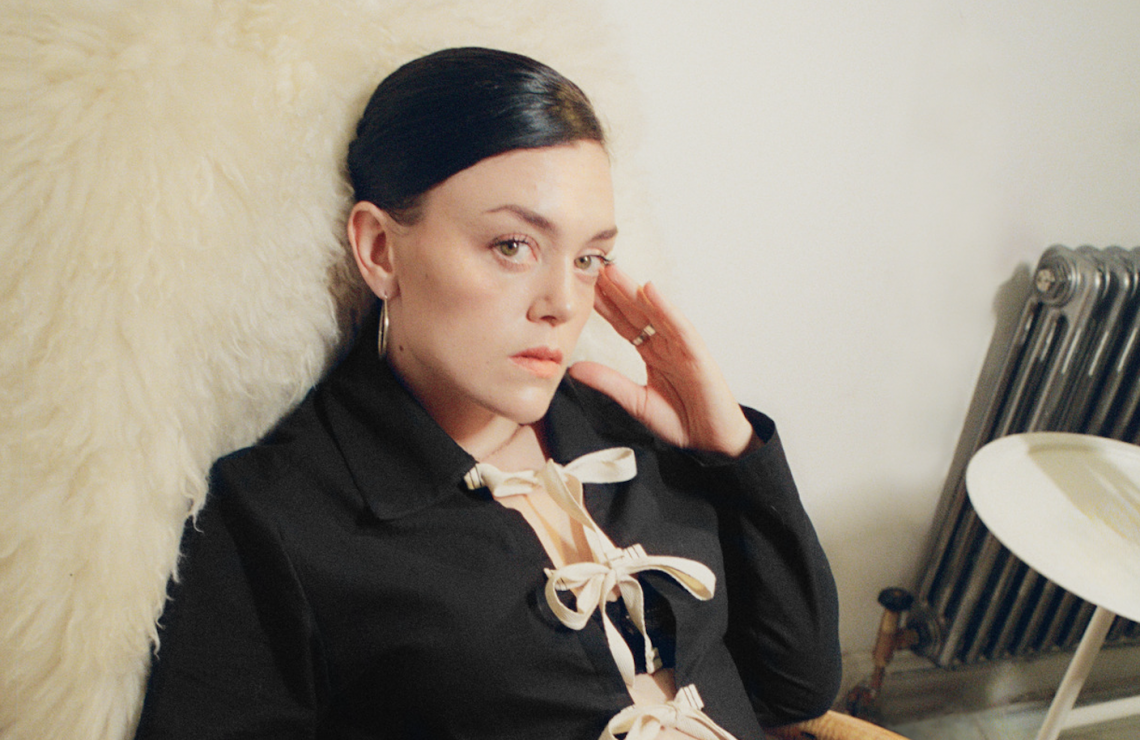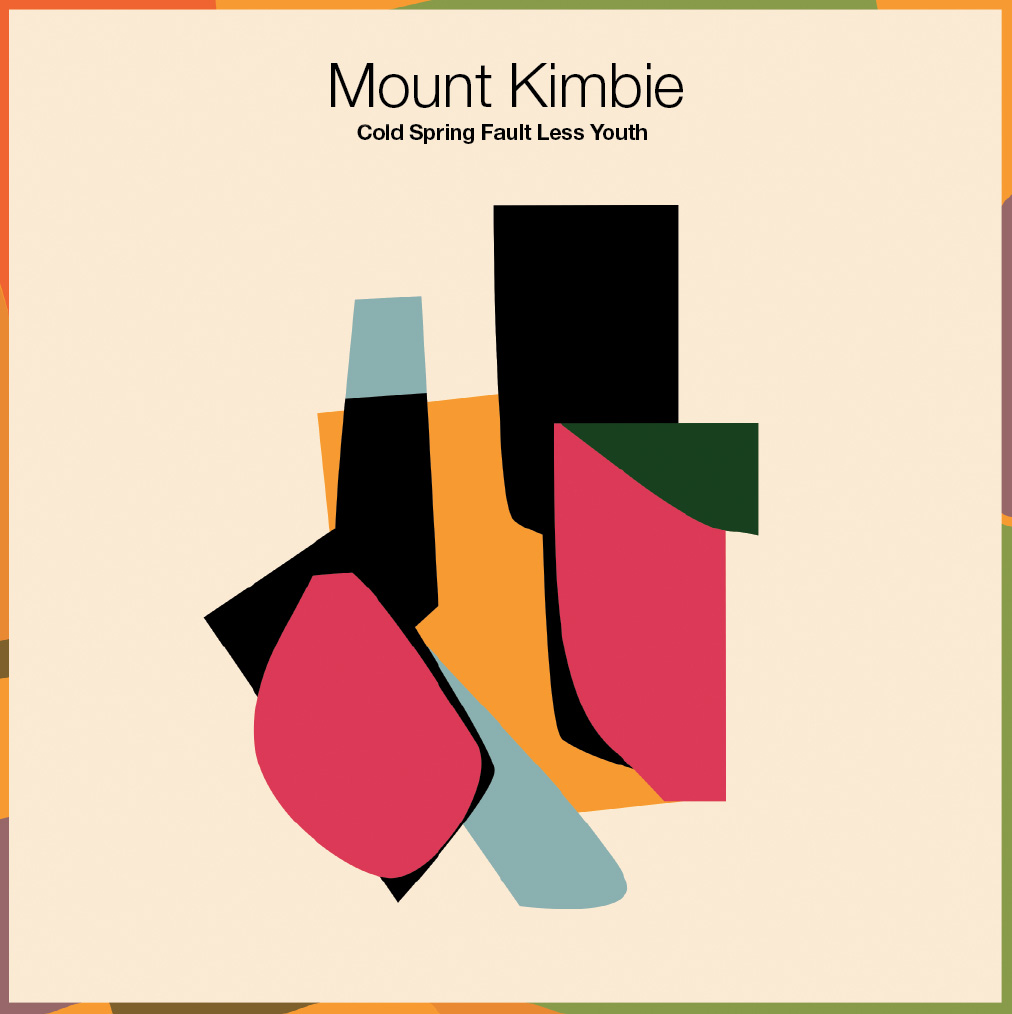Fresh from a 25-date run supporting Alison Moyet, Iona Zajac finds herself at a powerful threshold. A singular voice in contemporary folk, she’s about to step into an even brighter spotlight, joining The Pogues as vocalist on their sold-out UK tour, which kicks off today, before heading stateside later this year. And while the stages keep growing, so too does her voice – fierce, precise and haunted by light.
Off the back of her sublime single ‘Summer,’ and with new music around the corner, spoke to her about stillness and intensity, funeral marches and murder ballads, and why singing with The Pogues might just be the best buzz of your life.
Hi Iona. You’ve always managed to thread this razor’s edge between stillness and intensity in your voice, but ‘Summer’ feels like a shift – harsher air, darker corners. What was the emotional or sonic thread that pulled this one out of you?
Sonically with Summer, I guess I tried to match the simple message of the song – life can be full of darkness but it’s the pockets of light that we live for, and they will come. Alison Moyet spoke a lot about that on stage – and I’m paraphrasing – but that the perfect life doesn’t exist and so it’s for those moments of relief and sometimes bliss that we hold on. I guess I’d never given that much conscious thought until I got to my mid 20s and life got a bit harder. So it’s a dark song with pockets of light, and the stillness in it is trying to give space to those thoughts and echo the sort of hollow space I see for the funeral march Emily Dickinson writes of. See Emily Dickinson, ‘I felt a funeral in my brain.’
There’s something quietly brilliant about the way you write – like you’re not asking to be heard, you’re demanding it, gently. Does that come from your literary influences or something more instinctive?
I’ve never been one to write in swathes, but I’m a great observer, and I try and collect observations like jewels. So my notes folder is full of random one-liners – mundane and subtle interactions between people, how something feels when I touch it. From the husband and wife squabbling at airport security, or the man on the train last week who told me the key to being a good person is ‘deep heart, hard butt’ (lost in Polish translation). But I think the small moments and sensory intakes in life are the most fascinating, and they are what I see as the jewels in my songs. My favourite writers focus on the same – Hannah Sullivan, Leonard Cohen, Sibyl Baier, Sianne Ngai.
The Pogues’ Dublin show last year looked like pure electricity. What went through your head stepping on stage to sing with them for the first time, and how has that role been sitting with you since?
Haha the Pogues show in Dublin was without a doubt the best gig experience of my life. What a buzz. Singing with them for the first time in rehearsal was a moment in itself, but standing on a stage singing Poor Paddy to 4,000 people screaming it back is a feeling I’ve never had before. I’ve definitely found a stronger voice in me from singing with them, it’s very liberating, realising you can belt. And a huge honour to be asked back for the bigger run of RSATL, none of us are filling anyone’s shoes, but I think as a group we bring the right wild energy to the songs, and I hope Shane would approve.
There’s a long line of women in folk who’ve used beauty as a trojan horse for brutality – your work feels like it fits in that tradition. Are you conscious of that lineage when you write or is it more a case of finding out afterwards who’s walking beside you?
A lot of my favourite music pairs beauty with brutality, and growing up singing traditional murder ballads has definitely influenced the way I write. But instead of murder and courting I’ve perhaps turned more to feelings like disgust and desire. There are a lot of brilliant dark folk singers around and I guess we probably all influence each other. I’d have to say the music I’ve been writing recently is heavier on the dark than the folk, but I’m finding a lot of avenues for filling the folk beauty/brutality void through collaborations.
You’ve shared stages with Lankum, Cassandra Jenkins, Arab Strap. Each of those artists has a very different sense of atmosphere. What do you absorb most from those encounters?
I think the biggest takeaway from sharing stages with the people you’ve mentioned is how sound they all are. I’ve supported a lot of people now and the difference it makes when a headliner is sound and unpretentious and able to have the craic completely transform a gig. I love the gigs of course, but love the side moments – I remember the lift we gave Cassandra home after the gig, or introducing my dad to Arab Strap and them having the craic even more. My dad drove me on those Arab Strap dates actually, and he forgot his long-distance glasses so I’d always spot him down the back of a dark venue in his prescription sunglasses looking like a bodyguard, it’s silly things like that that stay with you. But yes sonically they are all very different with very different audiences and atmospheres, I think you have to really believe in what you’re doing to play to other people’ss – sometimes rowdy – crowds and stand a chance.
How has it felt going from DIY circuits and word-of-mouth shows to playing 25 sold-out academy dates with Alison Moyet (caught the Belfast show and loved it)? Do you feel like the scale changes the weight or meaning of the songs?
The Alison Moyet tour was extremely special and a huge jump from the scale of touring I’d done before. I had a joke where I’d come out of the train station in a random city and play ‘find the big building’ which more often than not was that night’s venue. The rooms were like giant ships which always filled up by the time I went on, and 24/25 shows were completely silent (naming no names!) It’s a privilege to play to rooms and audiences like that and gives so much space to the songs and their meaning. It’s also very exposing being up there on your own, if something went wrong it was all on me, and coming off stage pumped with adrenaline to go to a hotel room on my own was wild for sleep, or lack of. I’d never want to lose the intimacy of small shows and my heart belongs in sticky basements, but I definitely wouldn’t say no to another opera house!
There’s that Emily Dickinson line – “Tell all the truth but tell it slant” – that comes to mind when I hear your lyrics. Do you feel like honesty in songwriting always has to be bent or refracted in some way to really land?
I think there’s a time and a place for both refracted and blunt honesty in songwriting. My newer stuff is much more frank. And to go back to question 4, without giving too much away, my debut LP centres very much on a young woman’s experience of life and in particular reclaiming bad sexual experiences I’ve had and the shame that surrounds that. I don’t see the point in beating around the bush about those sorts of things, I’m angry and I want to shout about it, so frank and less refracted songwriting takes centre stage a lot more in what’s to come. But there are still also songs about chicken supermarkets and dreaming about Billy Connolly so not totally on the nose…
Is there a particular moment on this tour, standing in someone else’s spotlight-where you felt something quietly changed in you?
I’m definitely taking myself more seriously as a professional musician. I’ve noticed myself saying that to people when they ask rather than feebly responding ‘I work in a coffee shop and I play music…’ It’s the first tour I’ve come away from where I haven’t lost a substantial amount of money, and no way does that mean I’m on an upward trajectory, but it’s lessened the stress and insecurity and ‘what the hell are you doing Iona’ feeling.
When you look at what’s ahead-touring with The Pogues, releasing your debut and expanding into bigger rooms-what are you holding close to keep it grounded?
Things I’m holding close: I’ve found that some home comforts are key on tour to increase chances of sanity – my face cloth is a main example. And if I’m ever feeling homesick I try and find a John Lewis because it was the local department store I’d always walk through growing up and they look exactly the same wherever you are. The odd coffee shop shift offers a bit of routine and forced early mornings when I’m home, which is good for breaking me out of the antisocial gig hours. Living with my 90-year-old grandad keeps me securely grounded, he’d never accept any lah-di-dah!
Keep up to date with Iona Zajac on Instagram






